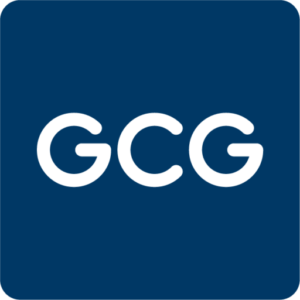
GCG Leadership Development Team
In today’s information-heavy world, business leaders face the challenge of assessing and validating data before making critical decisions. With vast amounts of knowledge available at our fingertips, it’s crucial to determine which sources can be trusted. Inspired by Alex Edmans’ approach, the following guide presents a framework to help leaders develop skills for evaluating information and making well-informed choices.
Alex Edmans’ “Ladder of Misinference”: A Framework for Evaluating Information
Alex Edmans, a renowned professor and management expert, designed the “Ladder of Misinference” framework to offer four key steps that leaders can use to assess the reliability and relevance of information:
- Identify accurate statements from inaccurate ones: Before accepting a fact or statement, check its accuracy. Ensure that the source material indeed supports what’s being said and not fall into the trap of accepting what seems immediately appealing or easy to believe.
- Ensure data representativeness: When analyzing data, consider whether it is representative of the whole truth rather than a cherry-picked sample. It’s crucial to draw from broader data sets, accounting for a wider range of experiences, including both successes and failures.
- Examine data for conclusive evidence: Make sure that the presented data genuinely supports the desired conclusions and negates alternative theories. Remain critical of the data and its potential implications, always looking for alternative explanations.
- Consider the context when applying evidence: Even when evidence seems strong, it may only apply to the specific situation in which it was obtained. Assess the transferability of research findings by considering factors like industry, demographics, and cultural backgrounds.
Implementing the Framework in Decision-Making
Leaders can apply the “Ladder of Misinference” framework when evaluating information by asking themselves these questions:
- Is the statement backed up by valid data? Ensure that the claim’s reference material accurately supports the claim and the data measures what is being claimed.
- Is the data representative or cherry-picked? Consider the broader context and various experiences, and seek more comprehensive data sets to inform your decisions.
- Are there alternative theories consistent with the data presented? Be careful not to confuse correlation with causation and consider other possible explanations for the data presented.
- Does the evidence apply to the specific context in which you operate or can it be applied universally? Assess the transferability of research findings to your industry, location, and other factors that could affect the information’s relevance.
Tips for Developing Information Evaluation Skills
- Make it a habit: Integrate these evaluation techniques as routine stages in decision-making to anchor the behavior and make it second nature.
- Encourage critical thinking among your team: Foster an environment where team members question and think critically about information, thereby strengthening the organization.
- Stay updated on emerging technologies, tools, and best practices: Continuous learning helps identify new misinformation tactics and improves critical thinking skills.
- Engage in open discussions: Encourage candid dialogue within your team to challenge preconceived notions and uncover biases and assumptions.
- Embrace diverse perspectives: Seek input from colleagues with diverse backgrounds and expertise to widen decision-making perspectives.
- Reflect on and learn from past decisions: Regularly review past decisions and information sources to refine your approach for future decisions.
- Be patient and diligent: Developing discernment takes time, and it is essential to be patient and diligent when evaluating data sources.
In Summary
In the era of abundant information and misinformation, the need for leaders to develop skills for accurate assessment and evaluation of information is increasingly critical. Implementing the “Ladder of Misinference” framework and regularly practicing critical thinking helps navigate complex decisions that drive organizations towards success. By honing these skills, you’ll be better equipped to make well-informed decisions and lead more effectively.
At Global Coach Group (GCG), our network of over 4,000+ experienced coaches is dedicated to delivering tailored leadership coaching to help leaders in becoming more self-aware, improving their communication strategies, and ultimately driving better team performance.
For leaders who want to become coaches or coaches looking to enhance their leadership coaching skills, Global Coach Group (GCG) provides a comprehensive leadership coaching certification program. GCG’s internationally acclaimed coaching tools and resources can help you improve your coaching proficiency and empower you to guide others.

GCG Leadership Development Team
Learn about the GCG's Coaching Tools
Measurable results, in LESS Time.
Reduce your session prep and follow-ups to just 15 minutes, while delivering coaching that improves leadership, team and business performances with 95% coworker satisfaction
